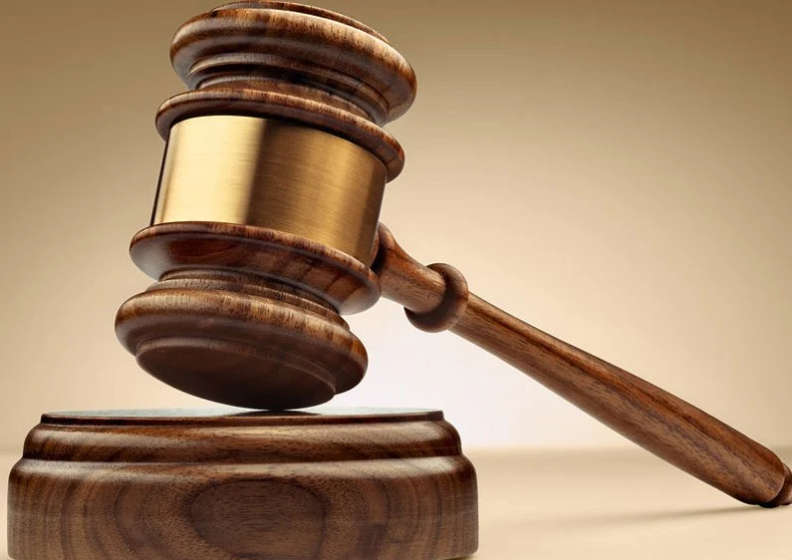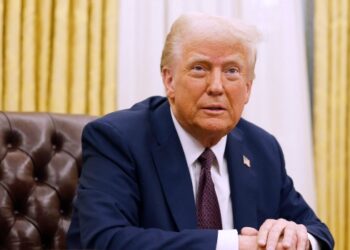President Muhammadu Buhari has said the Central Bank Digital Currency (CBDC), eNaira, and its underlying blockchain technology can increase Nigeria’s Gross Domestic Product by $29 billion over the next 10 years.
This is as he said the currency will help move many more people and businesses from the informal into the formal sector, thereby increasing the country’s tax base.
Buhari said this on Monday in Abuja during the official launch of the eNaira.
In his address, the President said the currency will help increase remittances, foster cross border trade, improve financial inclusion, make Monetary Policy more effective, and enable the government to send direct payments to citizens eligible for specific welfare programmes.
“In recent times, Your Excellencies, the use of physical cash in conducting business and making payments has been on the decline. This trend has been exacerbated by the onset of the COVID-19 pandemic and the resurgence of a new Digital Economy.
“Alongside these developments, businesses, households, and other economic agents have sought for new means of making payments in the new circumstances.
“The absence of a swift and effective solution to these requirements, as well as fears that Central Banks’ actions sometimes lead to hyperinflation, created the space for non-government entities to establish new forms of ‘private currencies’ that seemed to have gained popularity and acceptance across the world, including here in Nigeria,” he said.
According to the president, these realities prompted the Central Bank of Nigeria to explore issuing Nigeria’s own Central Bank Digital Currency, named the eNaira.
“While the journey to create a digital currency for Nigeria began sometime in 2017, work intensified over the past several months with several brainstorming exercises, deployment of technical partners and advisers, collaboration with the Ministries of Communication and Digital Economy and its sister agencies like the Nigerian Communications Commission, integration of banking software across the country and painstaking tests to ensure the robustness, safety and scalability of the CBDC System.
“Aside from the global trend to create Digital Currencies, we believe that there are Nigeria-specific benefits that cut across different sectors of and concerns of the economy. The use of CBDCs can help move many more people and businesses from the informal into the formal sector, thereby increasing the tax base of the country.
“Alongside digital innovations, CBDCs can foster economic growth through better economic activities. Indeed, some estimates indicate that the adoption of CBDC and its underlying technology, called blockchain, can increase Nigeria’s GDP by US$29 billion over the next 10 years,” he asserted.
The President added that CBDCs will also help increase remittances, foster cross border trade, improve financial inclusion, make Monetary Policy more effective, and enable the government to send direct payments to citizens eligible for specific welfare programmes.
“It is on these bases that I am delighted to officially launch the Central Bank of Nigeria Digital Currency, called the eNaira, and in so doing, we have become the first country in Africa, and one of the first in the world to introduce a Digital Currency to her citizens,” the President said.
Buhari, therefore, commended the Governor of the Central Bank, Godwin Emefiele, his Deputies and the entire team of staff who worked towards the launch of the eNaira.
He said, “33 banks are fully integrated and live on the platform, N500m has been successfully minted by the Bank, N200m has been issued to financial institutions, over 2,000 customers have been onboarded and over 120 merchants have successfully registered on the eNaira platform”.
The CBN governor also used the occasion to commend the President for “making history, yet again,” with the launch of the eNaira–the first in Africa and one of the earliest around the world.
“Mr. President, as you make groundbreaking reforms, there has been continuing debate on the true value of the Naira. Rather than worry today about the direction of the exchange rate, let us take a step back and analyze how we got here in the first place.
“Please recall that since the advent of the International Monetary Fund-led Structural Adjustment Programme in 1986, and the introduction of the Second Tier Foreign Exchange Market, the Naira has been on a one-way free fall from parity to the US Dollar in 1984 to over N410/USD today.
”Some 35 years later, we have not been able to achieve the many promises and objectives of that programme,” he said.
He also lamented the “widespread import dependency,” which has wiped out most of Nigeria’s production and manufacturing bases and exported jobs in the process.
“Under your leadership, Mr. President, we must stop this decline for good! We must return to massive homemade production; we must get our people working again. We must create an economic environment for massive domestic production and significant non-oil exports.
“As custodians of your national reserves, let me first assure you that there is no cause for alarm. Our FX reserves are strong and indeed getting stronger by the day, crossing the 40 billion USD mark, and is one of the highest in Africa – and growing,” he said.
In addition to the policies and actions of the CBN to support the economy especially through the pandemic, Emefiele announced a new financial instrument titled “The 100 for 100 PPP – Policy on Production and Productivity,” which, he said, will be anchored in the Development Finance Department under his direct supervision.
He explained that under this policy the CBN would advertise, screen, scrutinise and financially support 100 targeted private sector companies in 100 days, beginning from 01 November 2021, and rolling over every 100 days with a new set of 100 companies, whose names will be published in National Dailies for Nigerians to verify and confirm.
Attending the launch were Vice President Yemi Osinbajo, the Secretary to the Government of the Federation, Boss Mustapha, the Chief of Staff to the President, Prof. Ibrahim Gambari, Members of the Federal Executive Council, the Governor and Deputy Governors of the Central Bank, and Heads of Relevant Agencies.





















